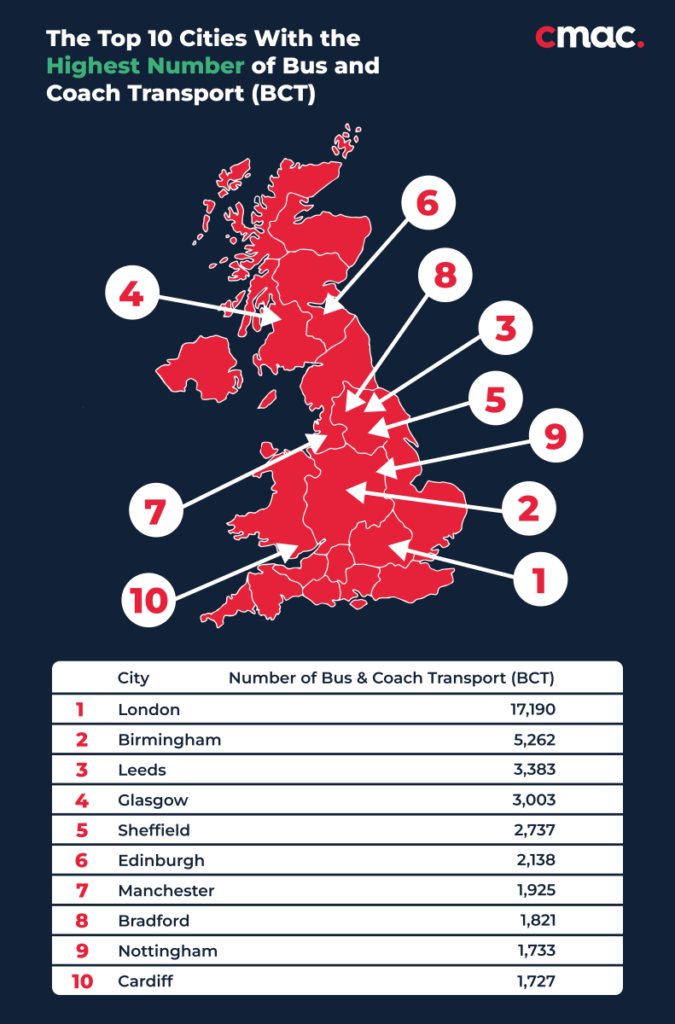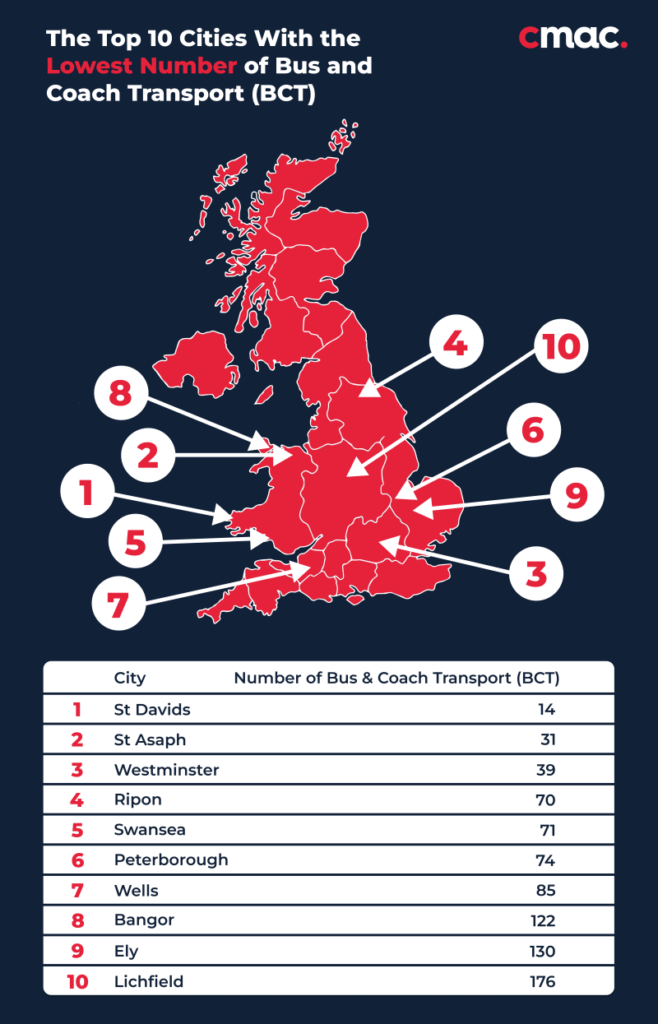Ground travel solution provider CMAC has released a report detailing the best and worst UK cities for public transport access.
Utilising National Public Transport Access Nodes data, CMAC identified which cities have the highest and lowest Bus and Coach Transport (BCT) stops — indicating how many bus stops, stations and any other means of hailing a bus or coach are available in each UK city.
CMAC then compared this data against data identifying how inter-and-intraconnected these cities are by rail and bus connections.
The top three were as follows:
- London – With 17,190 BCT stops, London takes top spot. According to the Trainline, there are 334 train stations and 270 Underground stations within Greater London, making the capital one of the best-connected cities in the world. London is also home to nine out of ten of the busiest railway stations in the UK.
- Birmingham – With 5,262 BCT stops, along with three main train stations within the city centre, providing fast and frequent connections both locally and nationally, Birmingham is the UK’s second most connected city.
- Leeds – Leeds rounds off the top three, boasting 3,383 BCT stops. Leeds also offers 15 train stations throughout the city, according to the Office of Rail and Road. Leeds City Train Station is one of the busiest train stations outside of London (second only to Birmingham New Street), with almost 24m entries and exists through the station between April 2022 to March 2023.

At the other end of the scale, CMAC published figures illustrating the top ten least transport accessible cities in the UK.
The bottom three are as follows:
- St. Davids – Located in Wales, Britain’s smallest city is distinguished by its 14 BCT stops. While this may reflect the city’s intimate scale, it also points to the potential for enhancing public transport connectivity.
- St. Asaph – With 31 BCT stops and only one train station, St. Asaph takes second spot.
- Westminster – Despite being at the core of one of the world’s most extensive public transport networks, Westminster has room for improvement with 39 BCT stops.

CMAC reported that with transport’s vital, unifying affects on Britain’s populace, neglecting the needs of smaller municipalities will cause these populations to become more fragmented over time.
Ensuring good quality access to transport services should is thus a priority for the councils and boroughs that govern them.
This inclusivity is critical in connecting remote or rural areas with major cities, ensuring that people and businesses across the UK have access to essential services, employment opportunities, and professional interactions.
Achievements and innovations in transport accessibility will be celebrated at the third annual CiTTi Awards, which will be held on 26 November 2024 at De Vere Grand Connaught Rooms in London. Nominations are open now! Please visit www.cittiawards.co.uk to learn more about this unmissable event for the UK’s transportation sector





